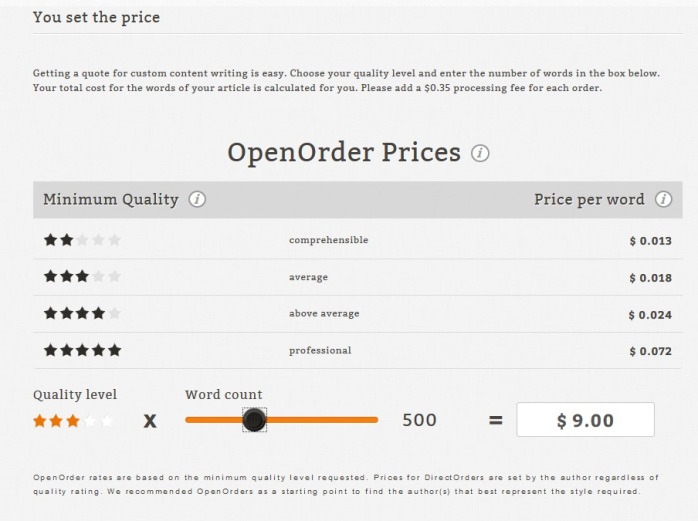If you want to start a career in freelance writing, it’s not enough to ask. Information, much like gasoline, is an important resource, but if you don’t use it, it will simply sit and age until it isn’t useful anymore.
I’ve had more than a dozen people approach me this week, all of whom I’d already given this website to in the past, and ask me about freelance writing. Naturally, I’m always happy to assist those just starting out – that’s why I made the Freelance Writer’s Guide, after all – but sometimes it can be a little tough repeating yourself 3 or 4 times with months in between because it can feel a bit futile. It got me thinking about the freelance spirit, and why motivation is so important when it comes to writing for money online.
Quick-Trigger Responses
While work is plentiful across several sites, it isn’t necessarily always plentiful on a single site. Dedicated workers know that the lists, boards, or other project postings need to be consulted a minimum of a few times a day for the best success rate, and sitting on one’s hands simply isn’t an option.
“Oh, I’ll just check the site tomorrow…” sends your potential money heading straight for another freelancer, so stop hitting your own brakes and get to it.
Physics and Freelance Writing
An object in motion tends to stay in motion, right? The same goes for an object at rest. The more you write, check, correspond with clients and build your profiles, the more likely you are to keep at it. If you sit for a half hour and make a halfhearted attempt to fill out a profile that you’ll “Get back to…” before you start playing Candy Crush – you’re probably never going to get back to it.
Give writing for money online its due and devote a few hours, at least, to your fledgling effort. It will spur itself and you’ll be surprised at how much you can accomplish when you’re in the groove.
Freelance Writing = Research
Writing freelance, especially articles, involves a lot of digging, hunting and reading to turn out a product that isn’t composed of equal parts “fluff” and BS. If you aren’t willing to dig into the site and at least read the Freelance Writer’s Guide in full before asking a slew of questions, you’re indicating that your time is more valuable than someone else’s (either mine or another writer’s) and that you lack the discipline necessary to research – which is a solid 50% of most writing work. This isn’t, as I’m sure you’ve gathered, a very good starting point for a freelance career.
Read first, ask questions after; there’s a very good chance that the things you’re curious about are already answered in the Freelance Writer’s Guide.

